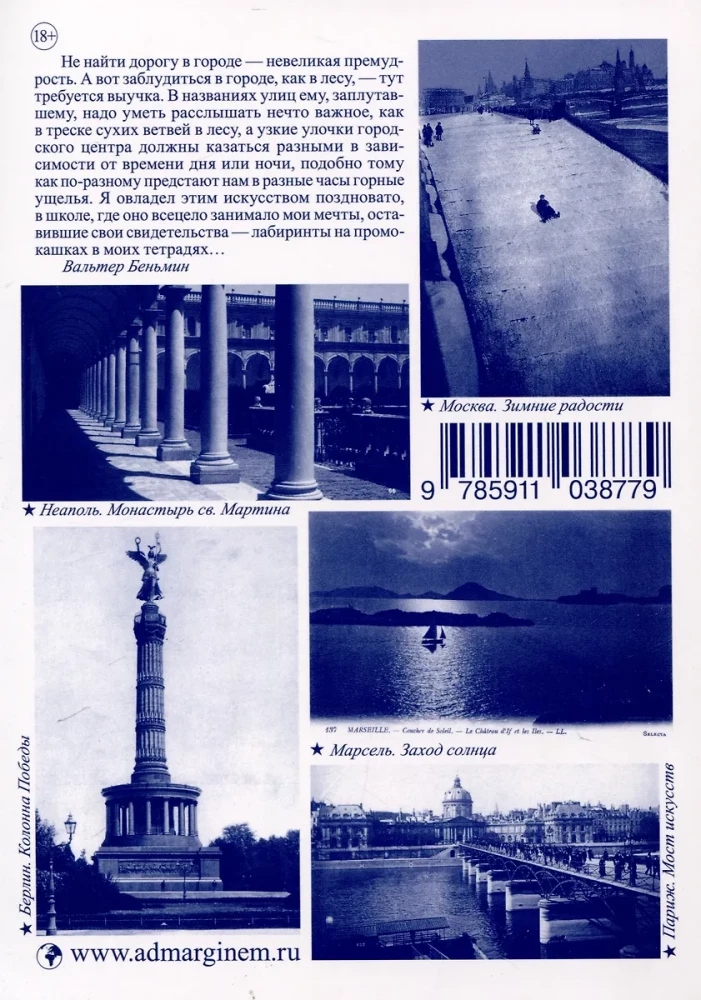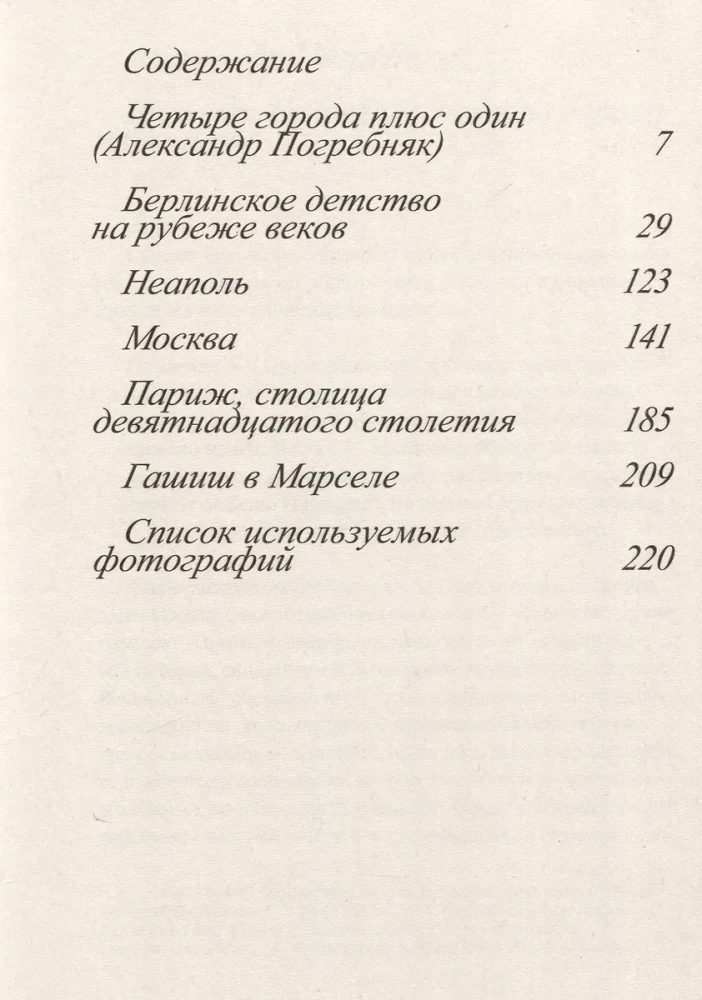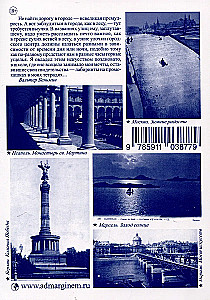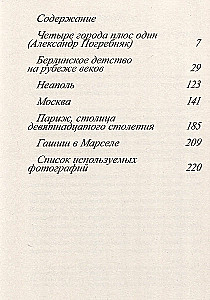Cities
The German-Jewish philosopher Walter Benjamin, a pioneer of cultural studies on memory and the philosophy of place, was one of the first to suggest that urban life intensifies feelings of isolation and atomization. Over different years, he wrote Denkbilder ("thought-images"),...
short texts that captured urban landscapes in which the city appears as a puzzle or a mythical labyrinth: an impressionistic essay on Naples (1925), a portrait of the Soviet capital (1926–1927), and the note "Hashish in Marseille" (1932). But the central place in Benjamin's constellation of cities is reserved for Berlin, where he grew up, and which briefly sheltered him from the Jewish pogroms in Paris.
The masterpiece of topographical hermeneutics "Berlin Childhood" written during the rise of Nazism (1932–1938), according to Adorno, became for the author "an allegory of the sunset of one's own life" - it describes a city overshadowed by the Third Reich. This study of the spatial model of memory and the dialectic of irrevocable loss and the salvation of the past, permeated with allusions to Greek myths, Dante, Shakespeare, and Proust, has become Berlin's "search for the lost future." In the essay "Paris, the Capital of the Nineteenth Century" (1938), the philosopher uncovers the genealogy of the capitalist myth that fetishizes consumption. The central images of his critique of modernity are the flâneur, the phantasmagoric space of the department store, and the phalanstery, where "morality becomes superfluous."
Author: Вальтер Беньямин
Printhouse: Ad Marginem
Age restrictions: 18+
Year of publication: 2025
ISBN: 9785911038779
Number of pages: 224
Size: 185х130х14 mm
Cover type: soft
Weight: 176 g
ID: 1709514

















